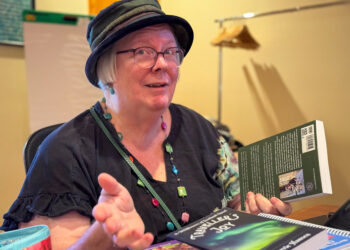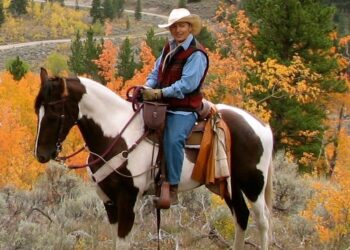By Eric Ladd PUBLISHER
It has been 16 days since the Evergreen High School shooting in Colorado and the assassination of Charlie Kirk. And yet, scanning the media airwaves, I’m struck by how quickly the conversation has already shifted away from violence, guns and mental health.
It reminds me of driving past a car wreck. We all slow down, look, feel emotion, maybe even imagine ourselves in the scene. For a brief moment we carry compassion. But then we press the gas, the wreck fades in the rearview mirror, and soon it’s forgotten.
But deadly violence in America is not a wreck to be left behind. It demands sustained attention. Public spaces are not safe—and they are becoming less safe by the day. Sacred places like schools are not as safe as they need to be, leaving parents with deep apprehension—and in some cases regret—about sending their most prized possession, their children, into the classroom. And too often, the tone of mainstream media only magnifies division, provoking infighting among communities rather than fostering unity.
When I wrote my first op-ed on this topic, I received strong replies from many of you—readers who expressed gratitude for keeping this conversation alive, and who encouraged me not to let it slip away. That response further motivated me to stay with this issue, and I welcome more of your letters, perspectives, and ideas. This platform is not just mine—it is ours. Together, we can keep this conversation alive.
There are two ways to address this crisis. One is from the surface: why do we remain an armed society that allows unstable and angry people such easy access to weapons? The other is deeper: why are so many people so unsettled, so broken, that they feel compelled to use violence as their tool for expressing anger, sadness or frustration?
In the aftermath of Charlie Kirk’s death, a handful of leaders briefly touched on these questions. Some acknowledged the role of news media, the dangers of unchecked social media, and the broken parts of our society that have left too many behind. For a moment, it was encouraging. But just as quickly, those words vanished. Few people picked up the threads and pushed the conversation forward. Few sought real conclusions.
What was most alarming was the lack of serious reflection in the press. Few outlets asked how and why Kirk’s assassin could so easily be armed and able to take a military-style shot in a public space. Is anyone else concerned by that?
The truth is, it is physically impossible to safeguard every public space from violence. While stronger security and presence may help in the short term, it will never be enough. We are still turning a blind eye to the most important question of all: why?
Why do we live in a culture where violence is seen as a viable solution? Why do we allow anger and hatred to manifest so easily into destruction? And why, after every tragedy, do we so quickly look away?
I, for one, refuse to move on.
So what can we do?
First, we must stay focused and not become distracted. We must keep civil, productive dialogue open and demand results—just as businesses do. We cannot give up.
Ask yourself: what is my platform, how can I advance this conversation, and what ideas do I have to help?
And if you doubt whether society can act quickly, remember this: we have the ability to build villages to host the Olympics in just a few years. After 9/11, we created the TSA almost overnight, transforming airline safety. When we decide something is urgent and non-negotiable, we act.
So why not now? Why not for the epidemic of violence that claims innocent lives every day.
My responsibility
As publisher of this media platform, I see it as my responsibility to keep civil, honest and direct conversation alive. Readers have asked me not to let this issue fade, and I intend to honor that. We can focus on making our communities safer. We can ensure our schools have the resources they need. We can treat mental health as a true priority, not an afterthought.
Find common ground with our leaders
I have also been given the opportunity to know our Montana delegation of leaders. Each of them are devoted family men who care deeply about their communities. But they are also trapped in a political system that does not allow for easy movement of ideas.
You may agree or disagree with their decisions and politics, but they are your elected leaders. I suggest that all of us work to find common ground with them so progress can be made on critical issues like this one. We must support them as neighbors and as leaders. That means starting at the local level, building unified messaging, and elevating solutions upward so they are equipped with the proper tools and the strong backing needed to bring meaningful ideas to a regional and national stage.
Dr. Martin Luther King Jr. once warned us: “Returning hate for hate multiplies hate, adding deeper darkness to a night already devoid of stars. Darkness cannot drive out darkness; only light can do that. Hate cannot drive out hate; only love can do that.”
This conversation cannot slip into the rearview mirror. Not this time.
With resolve,
Eric Ladd
Publisher and CEO
Outlaw Partners









